Covering Libya: A View from the Front Lines
Missy Ryan, Reuters
Mary Beth Sheridan, The Washington Post
Photos | Transcript
Washington, DC—On December 7, 2011, WFPG hosted a Beyond the Headlines Series program on Covering Libya: A View from the Front Lines, with Missy Ryan, a Reuters correspondent and Mary Beth Sheridan of The Washington Post. Both Sheridan and Ryan provided detailed accounts of their on-the-ground coverage during the Libyan revolution.
Mary Beth Sheridan discussed her coverage of the wars final phase, first in Misrata and Sirte, and later in Tripoli. When Libyans learned that Sirte, Qaddafis final strong-hold, had fallen, and later that Qaddafi himself was dead, Tripoli erupted in celebration. It was the most amazing joy Id ever seen, Sheridan said. People were honking horns, waving flags, and firing off every sort of armament you can imagine. She contrasted it to the scene she witnessed eight years earlier in Iraq, when Baghdad exuded an air of menace because of the American presence, even though most people were happy with Saddam Husseins overthrow. Even if NATO assisted them, the Libyans felt the revolution was theirs and a remarkable sense of hope emanated in the streets after they succeeded in taking back their country after Qaddafis 40-year reign.
Missy Ryan spent most of her time reporting from Qaddafi-controlled Tripoli, where Qaddafis forces held her and a group of 30 foreign journalists as hostages at a luxury five-star hotel, The Rixos Hotel, where many of the government officials also resided. During this time, the government bussed Ryan and her fellow journalists to tightly choreographed pro-Qaddafi rallies with hundreds of people in attendance, but the journalists had no clear indication of the people there were, why they were at the rally, or if they were being paid for their participation. Additionally, when allowed to venture outside the hotel, foreign reporters were accompanied at all times by interpreters or minders, who often coached interviewees to offer Qaddafi support in their discussions with journalists. As you can imagine, said Ryan, This was an extremely frustrating situation for us because we really wanted to present an authentic picture to the world of what was happening, and if we had taken the Qaddafi governments line, every single person in Tripoli would have considered the rebels, as they called them, the rats.
When asked about the dangers of reporting from a war zone and the training they received, both Sheridan and Ryan agreed that while news organizations do provide some hazardous environment training to journalists, most of what is learned comes from knowledge and experience gained over time and becoming intuitive in some ways. Sheridan added that often in war, competitor journalists become colleagues, allies, and friends, and will often assist each other. Despite the best preparations, however, Ryan admitted that even very experienced war correspondents make decisions that sadly result in injury or death to themselves or colleagues.
Both Sheridan and Ryan gave their perspectives on the challenges facing post-revolution Libya. A major problem is the lack of a unified vision for Libyas future and the role of religion and role women will play. Islamists are a very important group in Libya, especially militarily. Sheridan explained that there is a tendency for people to side with Islamists former government corruption, people view religious leaders as uncorrupt. The role of women in Libya is complicated by the influence of religion. Now, women feel that they can move throughout the country more freely than before the revolution because their husbands and fathers do not have to worry about Qaddafi officials. In post-Qaddafi Libya, Sheridan found that among women there was a sense of empowerment that developed during the revolution, yet they are not still represented in the government. The main issue facing women is whether the country will take more of a politically Islamic direction which will impact social laws like. As Ryan said, from a Western perspective we would like to see women have the freedom to choose.
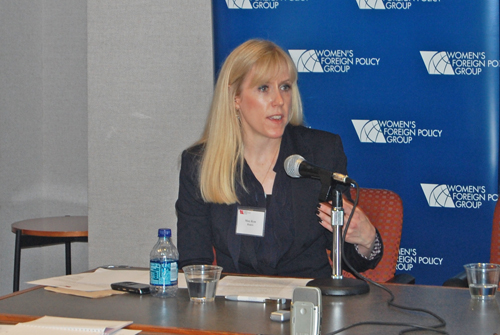 |
 |
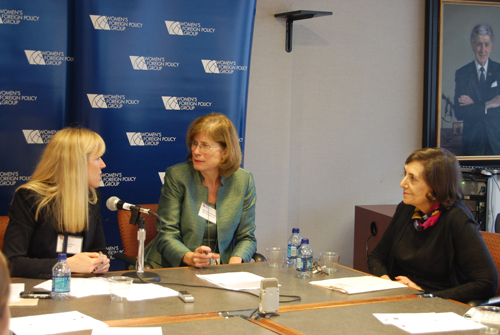 |
Missy Ryan addresses WFPG guests
|
|
Missy Ryan, Mary Beth Sheridan and
WFPG President Patricia Ellis
|
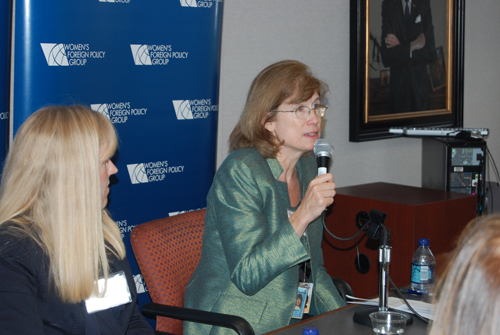 |
 |
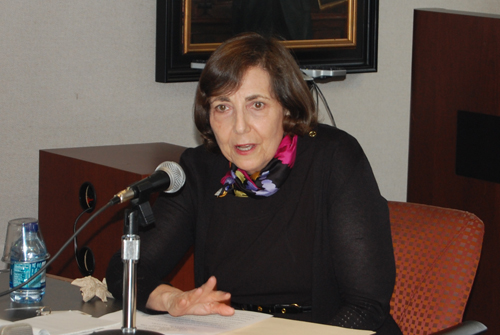 |
Mary Beth Sheridan discusses her experience in Libya
|
|
Patrica Ellis moderates the program
|
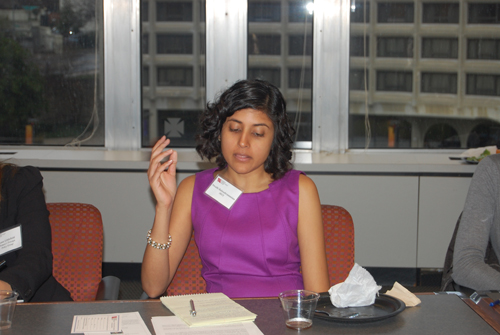 |
 |
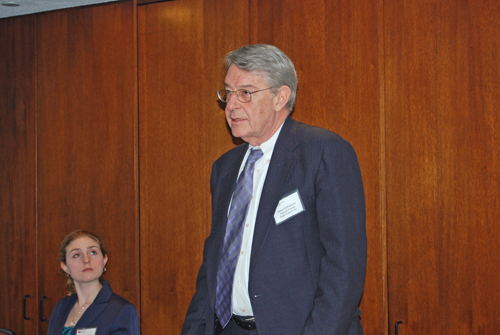 |
Swathi Balasubramanian, IREX
|
|
Daniel O'Flaherty, National Foreign Trade Council, Inc.
|
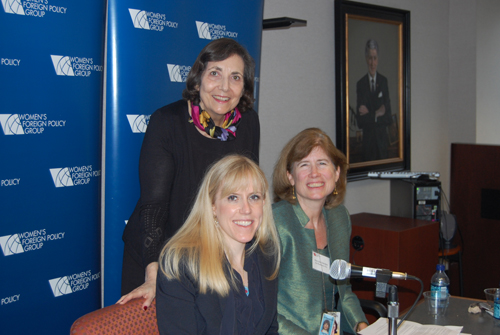 |
 |
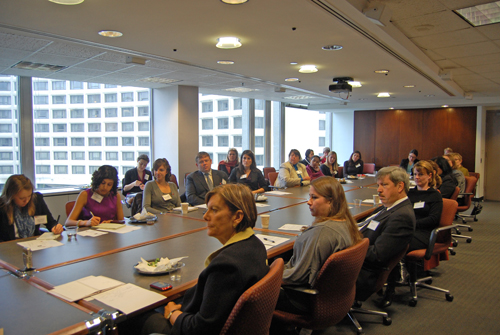 |
Patricia Ellis, Missy Ryan and Mary Beth Sheridan
|
|
WFPG guests and members during the program
|
|









